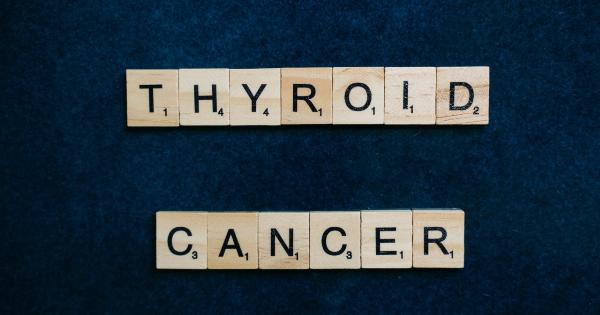The thyroid is a small butterfly-shaped gland located at the base of the neck. It is responsible for producing hormones that control metabolism and regulate the body’s energy levels.
Thyroid dysfunction occurs when the thyroid produces too much or too little hormones. This can lead to a variety of symptoms that can affect every aspect of a person’s life. Here are some signs and symptoms of thyroid dysfunction:.
1. Fatigue
One of the most common symptoms of thyroid dysfunction is fatigue. Feeling tired all the time, even after a good night’s sleep, is a sign that your thyroid may not be functioning properly.
This is because the thyroid hormones help regulate the body’s energy levels, and if they are imbalanced, it can lead to feelings of extreme tiredness.
2. Weight Changes
The thyroid plays a vital role in regulating a person’s weight. When the thyroid produces too little hormone, it can slow down the metabolism, making it difficult to lose weight.
Conversely, when the thyroid produces too much hormone, it can lead to rapid weight loss. So, if you are experiencing unexplained weight gain or weight loss, it could be a sign that your thyroid is not functioning properly.
3. Hair Loss
The thyroid hormones play a crucial role in regulating hair growth. So, if your thyroid is not functioning properly, you may notice increased hair loss or thinning hair.
This can be a distressing symptom for many people, and it’s important to address the underlying thyroid issue to help improve hair growth.
4. Mood Changes
The thyroid hormones also play a role in regulating mood. When the thyroid produces too much or too little hormone, it can lead to mood swings, anxiety, depression, and irritability.
If you are experiencing any of these symptoms, it’s important to talk to your healthcare provider to address any underlying thyroid issues.
5. Muscle Weakness
The thyroid hormones help regulate muscle function, so if your thyroid is not functioning properly, you may notice muscle weakness, cramps, or even tingling in the extremities.
This can be a sign of hypothyroidism or hyperthyroidism and should be addressed by a healthcare provider.
6. Changes in Menstrual Cycle
The thyroid hormones also play a role in regulating the menstrual cycle. Women with thyroid dysfunction may experience irregular periods, heavy periods, or even missed periods.
It’s important to talk to a healthcare provider if you notice any changes in your menstrual cycle.
7. Dry Skin
The thyroid hormones help regulate skin health. When the thyroid produces too little hormone, it can lead to dry, itchy skin. This can be a sign of hypothyroidism and should be addressed by a healthcare provider.
8. Intolerance to Cold or Heat
The thyroid hormones help regulate body temperature. When the thyroid produces too little hormone, it can make a person feel cold all the time, even in warm temperatures.
Conversely, when the thyroid produces too much hormone, it can make a person feel hot and sweaty all the time, even in colder temperatures.
9. Constipation
The thyroid hormones help regulate the digestive system. When the thyroid produces too little hormone, it can slow down bowel movements, leading to constipation.
10. High Blood Pressure
The thyroid hormones play a role in regulating heart function. When the thyroid produces too much hormone, it can lead to an increase in heart rate and high blood pressure.
This can be a sign of hyperthyroidism and should be addressed by a healthcare provider.
Conclusion
Thyroid dysfunction can manifest in a variety of symptoms, many of which can affect a person’s quality of life.
If you are experiencing any of the above symptoms, it’s important to talk to a healthcare provider to address any underlying thyroid issues.





























